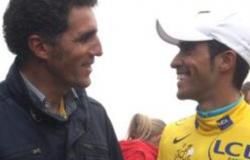Pedro González Mira He has just published his new book: “The power of music.” Follow the path of “Jesús Villarojo, through her albums”, “History of music”, “That was not in my Opera History Book”, “History of Great Piano Music”, “The musicians of Stalin” and “The musicians of Hitler”. A prolific author who has been compatible with literature with musical criticism and that, for many years, was editor chief of “rhythm”, the Spanish musical magazine.
It can well be considered as memories. It tells the musical life of a Gastón who, without a doubt, has enough to do with himself, although he adds a part of fiction. Above all, they have to do with the protagonist’s opinions about musical criticism. His two fundamental questions are what music? And who? Although in the end a third is added when? There are no easy answers and, in some way, all of us who exercise criticism have raised them. As the difference between criticism and journalism. Gastón responds to them throughout the narration of his musical life, becoming contradicted in his opinions in response to his evolution. The same evolution that leads to Gloria Lasso to the “ninth”, Mozart, Debussy, Bach or the Brahms With which he decides to disappear, passing through the five Latinos, the mornings of Radio Luxembourg, the piano of Eddy Duchin, the outdoor film sessions, the songs of Led Zeppelin or Pink Floyd, the social of Raimon in “Al Vent” and many other music. It tells us the impression that the first measures of the fourth movement of the “New world Symphony” caused, perhaps his first classical piece and ends with Gastón selecting for his last sound experience: the first of the eleven choral preludes for Brahms organ, “my Jesus, who chose me”, although in his invented conversation with the author, he reveals that one of his own music is dusk ”, from Strauss.
A long way from that first trunk that discovered the Wagnerian world of “Tannhäuser” – a way of starting the opera – until he ended up enjoying that Verdi who rejected for his initials Belcantist connotations, which he always rejected, and those that Rossiniafter also an initial position against, it was an exception. As something similar was the Vivaldi of “the four stations”, considered populacero in its principles. And, on this path, “the Alpine Symphony”, the staff preference for the “seventh” Malheriana or an unforgettable “Tristan” in Bayreuth.
And this extensive musical tour is intertwined with the power of music in emotional relationships. How friends help you enter music or how it can help more to flirt, either generating admiration for those who show wisdom or creating a climate that leads to that more. Also to discover in the notes the contradictions of oneself, sometimes helping to get out of the sinking. Finally, Gastón wonders if music must be an object of pleasure or should be treated differently. He answers and makes a decision.
Pedro González Mira manages to transfer the importance, power, of music, not only for him, but for whom, loving it, reads the book and does so with a personal and sincere story full of strength.






